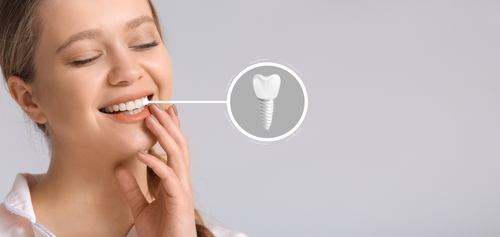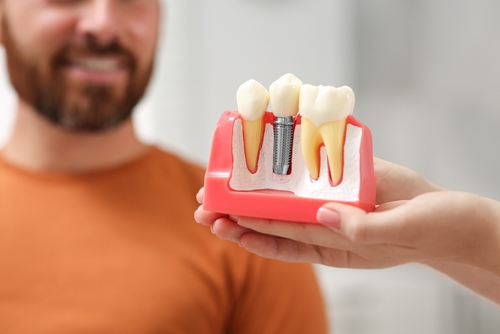7 Key Causes of Dental Implant Sensitivity
Over the past few decades, dental implants have dramatically changed our approach to tooth loss, offering resilience and performance akin to natural teeth. But as with any medical treatment, the aftermath can present its own set of challenges. Interestingly, the discomfort following an implant procedure doesn’t originate from the implant itself, but from the tissue surrounding it.
Although this is not uncommon, it’s important to understand why it happens. So, be sure to stay in touch with your all-on-4 dental implant specialist in Rancho Bernardo because understanding the root of the sensitivity can help you regain your self-confidence and smile. Read on and learn more about it!
Why do I feel pressure on my dental implants?
It can sometimes be difficult to diagnose dental sensitivity. There are, however, a few reasons why you may be experiencing it:
1. Healing phase

2. Osseointegration
Dental implants settle into the jawbone through the process known as osseointegration, which explains why you feel some pressure. This essentially indicates that the implant has been securely incorporated into your jaw, laying the foundation for the forthcoming placement of the crown.
- Sinus proximity
Implants in the upper jaw have a unique challenge: their proximity to the sinus cavities. There may be a noticeable pressure sensation the moment it gets too close or even slightly enters a sinus cavity.
4. Occlusal trauma
Essentially, this refers to the stress caused by biting and chewing. If the implant or its accompanying crown doesn’t align precisely with the neighboring tooth, you could experience added pressure during biting. Understandably, this can lead to some discomfort.
5. Infection or peri-implantitis
Infections near the implant area, known as peri-implantitis, can result in heightened sensitivity and sensations of pressure. Possible symptoms of this condition include redness, swelling, and potential pus discharge.
6. Loose or damaged crown
If the implant crown becomes loose or suffers damage, it may no longer align seamlessly with the implant itself. This misalignment can lead to feelings of pressure during actions like biting or chewing.
7. Nerve disturbance
In some cases, implant placement can cause nerve compression, causing sensitivity, tingling, or pressure. It’s crucial to seek advice from your dentist in such situations.
How long is a dental implant sensitive?
In the days following the surgery, you can expect some sensitivity, swelling, and discomfort. This is a natural response to the procedure and typically subsides within a week. Luckily, over-the-counter pain relievers and prescription medications can help during this time.
Though implants are designed to function like natural teeth and are usually not sensitive to external stimuli, discomfort should not last more than a few weeks.
Who is the most trusted all-on-4 dental implant specialist in Rancho Bernardo?

The foundation of a brilliant smile? Good dental habits and regular visits to the dentist. Think you might be late in addressing a dental concern? Trust us, you’re not the only one. Why not give us a call? We’d be happy to set up your complimentary consultation.
Comments are closed.

